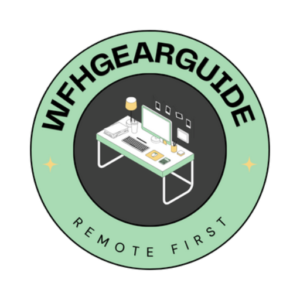Introduction
In recent years, the concept of remote work has gained significant popularity, with an increasing number of employees embracing the flexibility and convenience it offers. However, as we trade office cubicles for home offices, a new concern has emerged – the invasion of privacy by employers. This blog post delves into the importance of maintaining work-from-home privacy and provides practical tips to protect yourself from invasive employers.
The Shift to Remote Work: The COVID-19 pandemic forced a rapid transition to remote work for countless professionals around the world. While remote work has its merits, such as reduced commuting time and increased autonomy, it has also blurred the boundaries between personal and professional spaces. Without the physical separation provided by a traditional office environment, the risk of invasive employers encroaching upon our privacy has become a significant concern.
The Need for Privacy in Remote Work: Privacy is a fundamental right that should not be compromised, regardless of our work setting. As we adapt to remote work, it is crucial to establish clear boundaries and maintain a sense of personal space. Respecting an employee’s privacy not only fosters trust but also enhances overall job satisfaction and well-being.
Challenges Posed by Invasive Employers: Invasive employers may attempt to monitor and control every aspect of their employees’ work-from-home experience. Common tactics include excessive surveillance through monitoring software, invasive video conferencing practices, and intrusive communication methods. While employers may argue that such measures are necessary for productivity, it is important to strike a balance between supervision and respect for privacy.
Here’s an example posted by a reddit user:

“Certain companies (Crossover, Trilogy) have implemented a screentracking program called WorkSmart that not only tracks cursor movements (coming up with a “focus score” and an “intensity score” that can be practiced to assess the rate of contractors), but takes screengrabs and pictures of the employee through the webcam every ten minutes. (Allegedly, the program needs the employee to be looking directly into the camera, too.)
u/alwaysgotconcerns
Does anything else quite so severe like this exist for remote work? Does this make any sense for anyone doing any kind of qualitative work / who has any sort of emotional needs beyond a robot’s?
Comments? Workarounds? Fears?”
Practical Tips for Preserving Work-from-Home Privacy
Establish Clear Boundaries
Set clear expectations with your employer regarding working hours, breaks, and communication channels. Define when you are “on the clock” and when personal time begins.
Use Secure Communication Tools
Opt for encrypted messaging and video conferencing platforms to ensure the privacy and security of your conversations. Platforms like Signal and Zoom offer end-to-end encryption for secure communication.
Get a Webcam Cover!

I can not tell you how helpful it is to have a webcam cover as a backup policy. Personally, knowing that I have any sort of monitoring device or camera physically covered while I’m working gives me extreme peace of mind. That’s why we created some WFH Gear Guide webcam covers for you all. Take a look on amazon!
Review Company Policies
Familiarize yourself with your company’s privacy policies and guidelines. If any practices seem invasive or unjustified, address your concerns with your employer or HR department.
Keep Personal and Work Devices Separate
Maintain a clear distinction between personal and work devices. By using company-provided equipment solely for work-related tasks, you can limit the potential invasion of your personal life.
Protect Your Home Network
Ensure your home Wi-Fi network is password-protected and encrypted. Use a VPN software like NordVPN to protect your browsing history on your personal devices as well as your work devices. Although, your work device browsing history is never truly safe. Regularly update the router firmware and use a strong, unique password to minimize the risk of unauthorized access.
Be Mindful of Your Surroundings
When participating in video conferences or calls, be aware of your surroundings. Consider using virtual backgrounds or blurring your background to maintain privacy.
Regularly Update Software
Keep your devices’ operating systems, apps, and antivirus software up to date. Regular updates often include security patches that protect against potential vulnerabilities.
Seek Support from Colleagues
If you suspect privacy violations or invasive practices, discuss your concerns with trusted colleagues. Collective action can be more effective in addressing such issues.
Conclusion: As remote work continues to reshape the modern workplace, maintaining work-from-home privacy becomes crucial. It is essential for employees to assert their rights and take proactive measures to protect their personal lives from invasive employers. By setting boundaries, using secure communication tools, and staying informed about company policies, we can strike a balance that respects privacy while embracing the benefits of remote work. Together, we can create a work-from-home environment that prioritizes both productivity and privacy.

 Top Articles
Top Articles 

